Former deputy prime minister Tim Fischer dies
John Howard has delivered a heartfelt tribute to his “wonderfully loyal” colleague Tim Fischer after the former deputy prime minister died following a long battle with cancer.
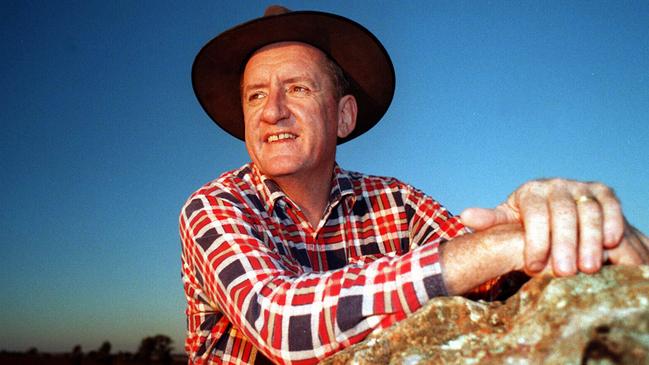
National
Don't miss out on the headlines from National. Followed categories will be added to My News.
Former deputy prime minister Tim Fischer has died at the age of 73.
Fischer died peacefully last night surrounded by loved ones at the Albury-Wodonga Cancer Centre.
Prime Minister Scott Morrison has offered his family a state funeral.
Politician, soldier, ambassador, author, farmer … Fischer wore many hats throughout his 73 years, though he was primarily known for one, his trademark Akubra.
For the former deputy prime minister and National Party leader, the Akubras marked him out as a man who was proudly and forever country.

Although a staunch conservative, Fischer was respected across the political spectrum. Upon his resignation as deputy prime minister in 1999, then Labor leader Kim Beazley described him as “one of the genuinely loved people in this place,” and Kevin Rudd made him Australia’s first ambassador to The Vatican in 2008.
His honours were many and varied, including a papal knighthood in 2012 and several medals for his military service. He was made a Companion of the Order of Australia in 2005.
He is survived by wife Judy, whom he married in 1992, and two sons, Dominic and Harrison.
TRIBUTES TO A POLITICAL GIANT
Former prime minister John Howard, who is in the UK for the Ashes, told the Seven Network Mr Fischer was a “very loyal colleague”.
Mr Howard said he led the National Party with “enormous energy”
“He was a wonderfully loyal colleague .. always punched hard for the National Party but never lost sight of what in the best interest of Australians,” he said.
“He believed in his party but also believed passionately in Australia’s future and strength.”
Mr Howard said he was a “true Coalitionist” and an “authentic Australian character”,
The former PM added Mr Fischer was not viewed in “hostile” fashion by his rivals.
“He was a decent human being .. somebody who served his country in public life,” he said.
“People felt for Tim over the last few years especially because a lot of people knew he was battling a terrible disease.
“His role in public affairs lasted way beyond his time in parliament ... it expanded, because he was able to focus on things he cared about.”
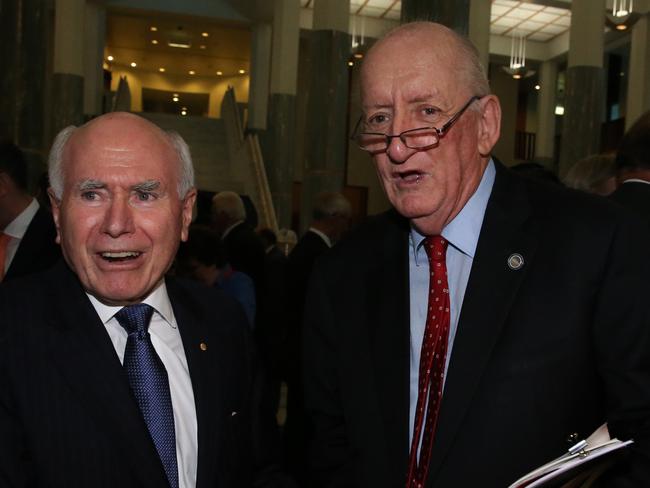
Scott Morrison paid tribute to Fischer as a “dear friend” who will “forever cast a big shadow on our nation”.
Tim Fischer was a dear friend. Jenny and I are deeply saddened by Tim’s passing. Tim Fischer was a big Australian in every sense of the word. Big in stature, big in his belief, big in his passion, big in his vision for what Australians could achieve...
— Scott Morrison (@ScottMorrisonMP) August 22, 2019
And big in his view of Australia’s place in the world. As a result, Tim Fischer will forever cast a big shadow on our nation. Jenny and my thoughts and those of our entire nation are with Tim’s wife Judy, their sons Harrison and Dominic and his extended family and many friends.
— Scott Morrison (@ScottMorrisonMP) August 22, 2019
Thank you Tim, we loved you very much. pic.twitter.com/RfUnIXysbH
— Scott Morrison (@ScottMorrisonMP) August 22, 2019
Deputy PM Michael McCormack said Fischer embodied “loyalty, kindness and courage”.
Australia has lost one of its finest today with the passing of Tim Fischer AC. Tim was a giant of the National Party. He embodied loyalty, kindness & courage. Regional Australia had no better friend. Heartfelt thoughts & condolences with Tim’s wife Judy, sons Harrison & Dominic. pic.twitter.com/a6UsjNDgg4
— Michael McCormack (@M_McCormackMP) August 22, 2019
Former PM Kevin Rudd praised Fischer as “a good Australian”.
“I was proud to appoint him as our first and best Ambassador to the Holy See,” Mr Rudd tweeted.
“I will never forget him in his beloved Akubra with me in audience with the Pope. A good Australian.”
Victorian Premier Daniel Andrews hailed Tim Fischer for his “life in service” from the jungles of Vietnam to the halls of Parliament.
“He often said one of his proudest achievements was securing gun control reform,” he tweeted.
“It is because of that same courage of his convictions that he leaves behind a legacy of a safer Australia.”
Vale Tim Fischer. A great Australian who set the benchmark for dedicated, respectful, passionate service to our country. In uniform, in Parliament and as a statesman he was a true gentleman. A life well-lived. Love to his family & friends at this difficult time. Pix credit: AAP pic.twitter.com/J2McnEIr8V
— Darren Chester MP (@DarrenChesterMP) August 22, 2019
I’m very saddened by Tim Fischer’s passing. He was a true politician of the people, and while he and I disagreed on many things –Tim was a reminder that in an ever more divided world, good judgement can cut across political lines.
— Richard Di Natale (@RichardDiNatale) August 22, 2019
CANCER LINKED TO VIETNAM SERVICE
Fischer died from acute myeloid leukaemia, with which he was first diagnosed in 2016, but he had already fought other manifestations of the disease, including cancer of the bladder and prostate (diagnosed in 2008), as well as melanomas.
In an interview for the ABC’s Australian Story last year, Fischer said medical specialists had suggested to him that his immunity had been compromised by exposure to Agent Orange during his service in Vietnam.
Fischer served as a 2nd Lieutenant with the First Battalion Royal Australian Regiment in Vietnam from July 1966 — when he was just 20 years old — to March 1969, a period that coincided almost exactly with the peak years for the USA’s deployment of Agent Orange (1967-1969).
In a 2005 study, the Australian Institute of Health and Welfare found that Vietnam veterans had a cancer incidence rate that was 15 per cent higher than expected compared to the male population. They also had a 23 per cent higher overall mortality rate.
American studies have also found an association between Agent Orange exposure and rates of cancer among veterans.
EARLY POLITICAL CAREER

Less than two years after leaving the army, Fischer was elected to the New South Wales parliament, where he would stay until 1984, representing the electorates of Sturt and then Murray. He was the first Vietnam veteran to serve in any Australian parliament, and at the age of 24, one of the younger politicians ever elected to office in this country.
His first five years in parliament were served as a backbencher in the Askin Liberal government, followed by eight years in opposition through the Wran and Unsworth Labor governments.
FEDERAL POLITICS AND GUN DEBATE
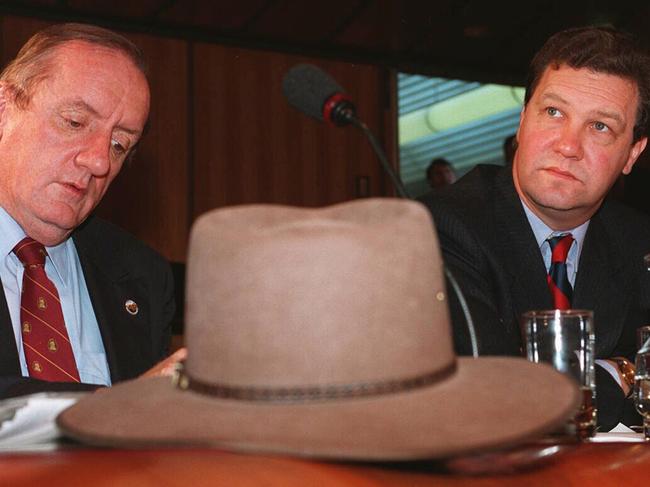
Fischer made the transition from the state opposition bench to its federal counterpart in 1984, representing the seat of Farrer. He jumped just as Nick Greiner came to power in NSW.
He became National Party leader in 1990 but it would not be until 1996, and the election of the Howard government, that he would taste power, as Deputy Prime Minister and Minister for Trade.
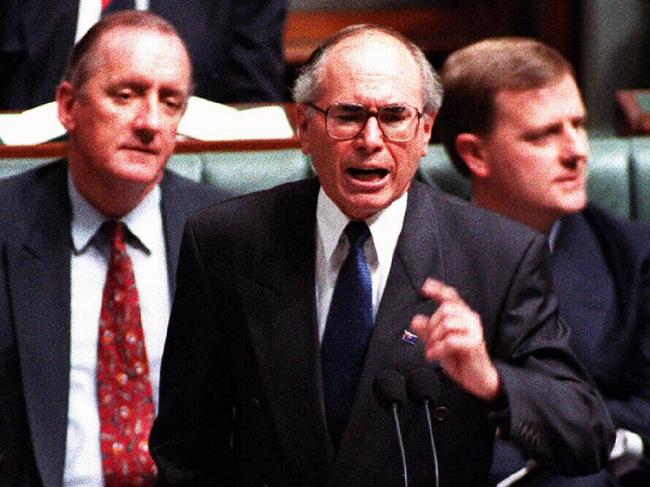
He is remembered for the instrumental role he played in the campaign for new gun control laws following the Port Arthur massacre, and was often put in the position of selling the laws in electorates with high levels of gun ownership.
In a 2016 interview, he recalled that an effigy of him was hanged in Gympie during a shooters’ rally.

It didn't deter him. Fischer remained an outspoken critic of America’s lax gun control measures long after leaving parliament, even suggesting Australians boycott the USA as a travel destination in 2013 after the shooting death of Australian basketballer Christopher Lane.
He was vocal on guns until the end, telling AAP earlier this month that the problem with reforming gun laws in America was the powerful National Rifle Association (NRA).
“Until the state and federal congresses stand up to the NRA no real progress will be made,” he said.
“In the meantime Australia’s DFAT should upgrade the smart traveller site to reflect the dangerous situation in the USA re guns.”
LIFE AFTER PARLIAMENT
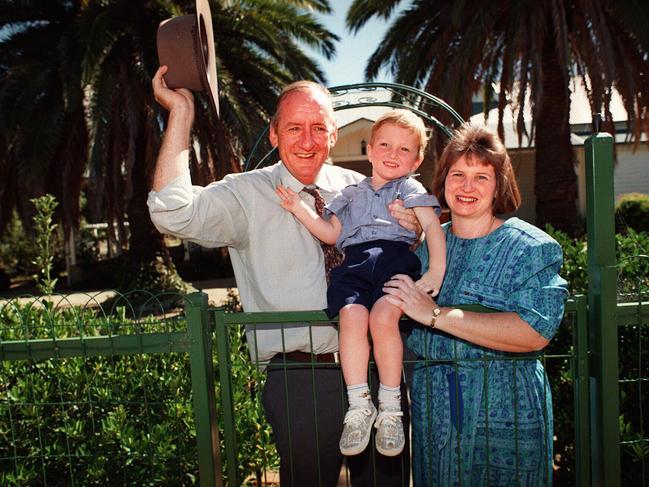
Fischer surprised his colleagues by announcing his resignation as Deputy Prime Minister and leader of the National Party in 1999, before leaving parliament at the 2001 federal election.
He later revealed that his resignation had been prompted in part by the fact his then five-year-old son Harrison had just been diagnosed with autism.
Fischer himself would later go on to reveal that he too was on the autism spectrum — something that he joked explained his love of trains (a trait often found in autistic people).
Fischer wrote three books on trains and train journeys and also revealed that he proposed to wife Judy in the gardens at Kuranda Railway Station.
He remained outspoken on transport issues late in his life, in recent years advocating for a tram link from Melbourne’s CBD to Tullamarine Airport to beat congestion, and criticising Adanifor planning to use a non-standard rail gauge for its planned rail link to its planned mine in Far North Queensland.
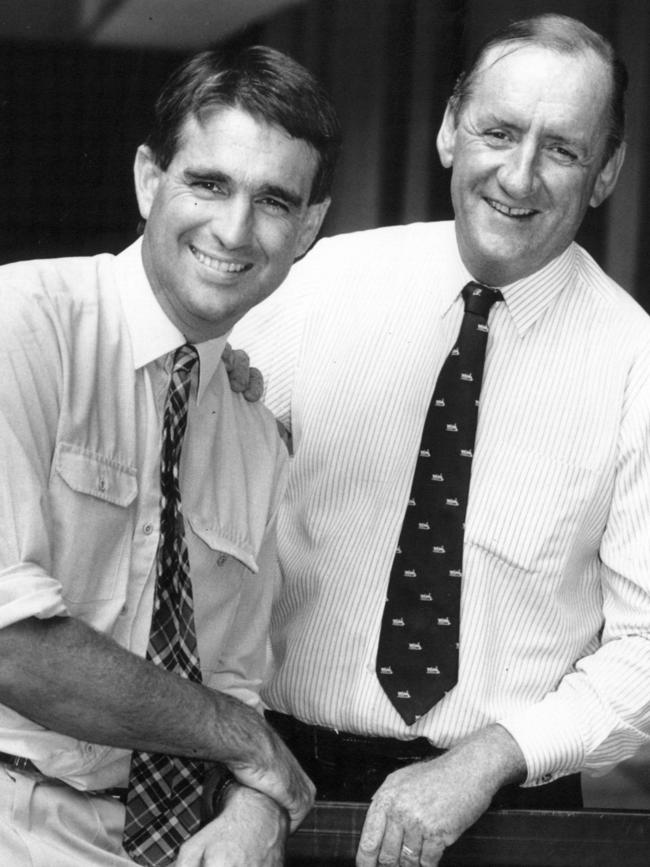
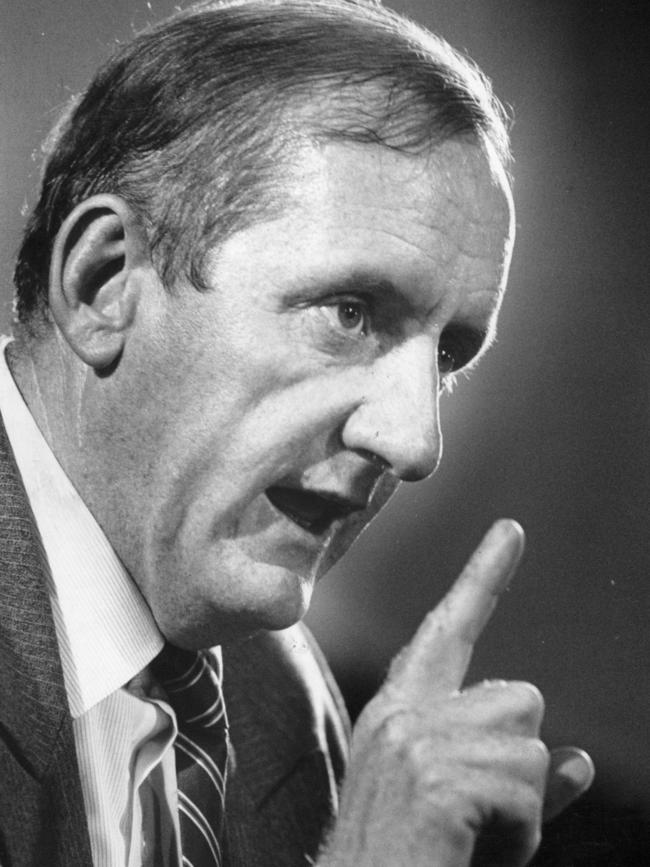
Fischer maintained a busy life after parliament, serving as the chairman of Tourism Australia between 2004 and 2007, coinciding with Scott Morrison’s tenure as the organisation’s inaugural managing director.
In 2008 he participated in the Rudd government’s 2020 Summit as an organising committee member.
That same year, at the conclusion of World Youth Day celebrations in Sydney, Rudd named him as Australia’s first ambassador to the Holy See.
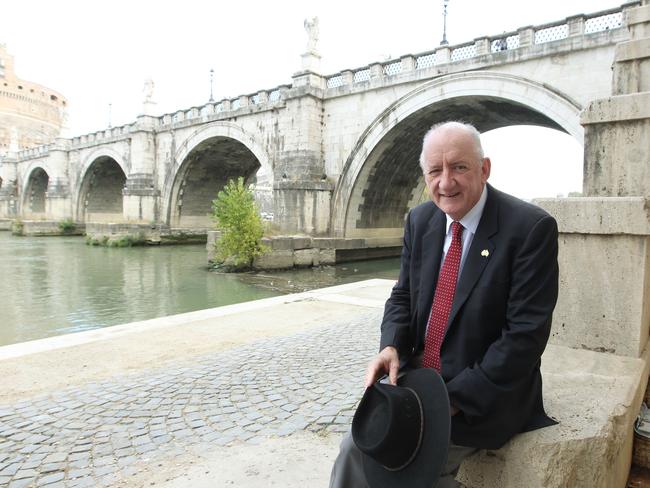
Fischer served in the role from 2009 until 2012, a remarkable period in the history of the Catholic Church, encompassing the first-ever resignation of a sitting pope, the canonisation of Australia’s first saint Mary MacKillop, and a deepening sense of crisis around the issue of child sexual abuse by the clergy.
The experience — which the lifelong Catholic described as a “great privilege” — also informed his memoir Holy See, Unholy Me: 1000 days in Rome in 2015.
Originally published as Former deputy prime minister Tim Fischer dies


